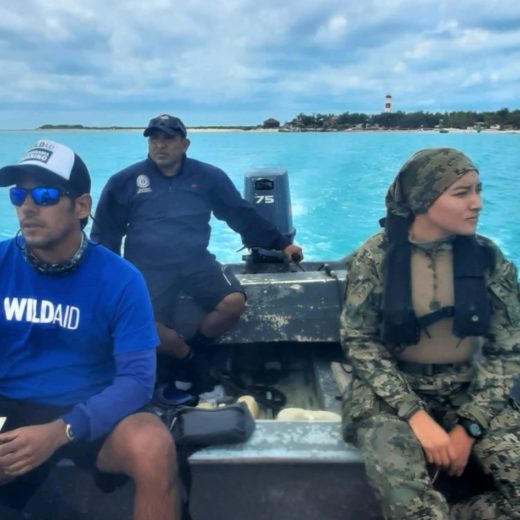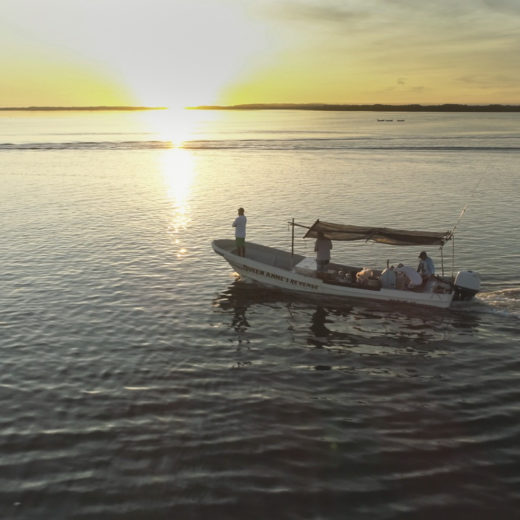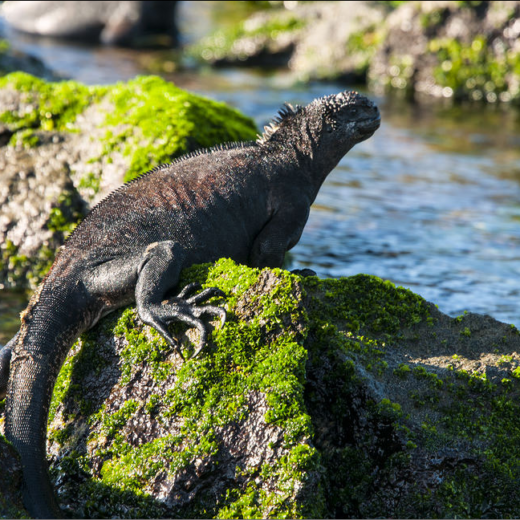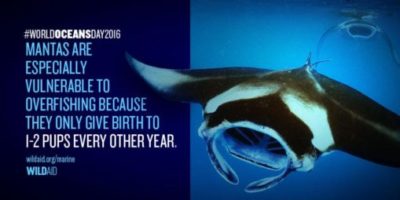
BY SILVIA SANCHEZ, WILDAID MARINE PROGRAM
Illegal fishing continues to pressure Ecuador’s numerous protected areas and fisheries. Funding for conservation efforts on mainland Ecuador is minimal, and due to recent earthquakes, protected area managers have even fewer resources to carry out patrols that protect their marine spaces. WildAid’s work in Ecuador is more important than ever to prevent exploitation of its unique marine life as we celebrate World Oceans Day.
Machalilla National Park along coastal Ecuador is one of the world’s most important sites for manta aggregation as it is home to the largest population of Giant Manta Rays (Manta birostris), estimated at 1,500 individuals. It’s also home to five species of sea turtles, 20 species of whales and dolphins, hammerhead and whale sharks, and countless species of fish and coral reefs.
Listed by the IUCN as “Vulnerable,” the primary threat to manta species is unsustainable fishing. As manta rays have few natural predators, their recent decline is due in large part to direct human predation, driven by the growing demand for their gills or death as bycatch. Compounding matters, mantas are among the slowest to reproduce of all sharks and rays, usually birthing one or two offspring every few years. Their low reproduction rates mean that mantas cannot sustain or survive commercial fishing for long.
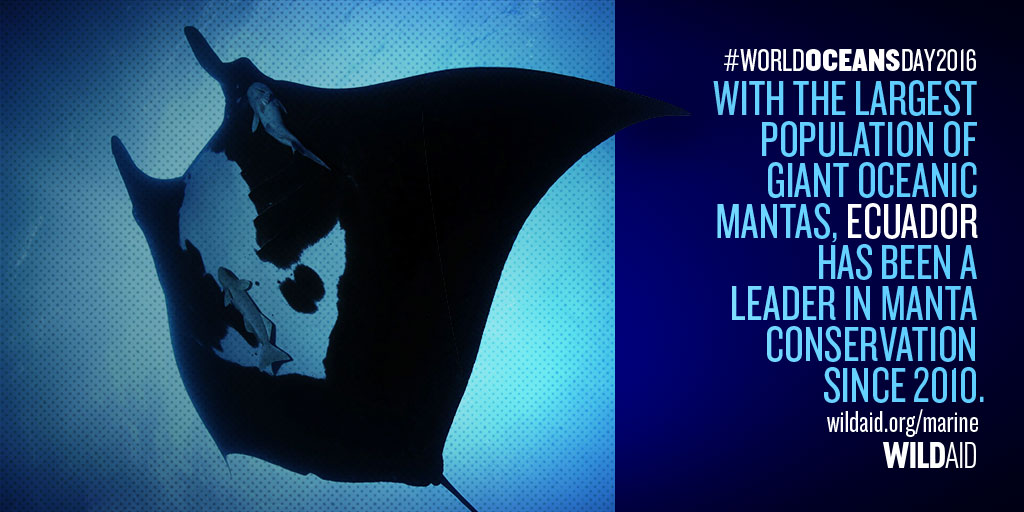

Illegal drift gillnet and longline fisheries targeting other species directly threaten mantas in Ecuador. Mantas approach the baited hooks on longlines and get caught on the line as bycatch. Some fishers actively target mantas to profit from the demand for manta gills, used as an ingredient in a so-called “health tonic” called peng yu sai marketed primarily in Guangzhou, China. The hooked mantas attempt to free themselves by thrashing, becoming even further entangled or suffering injuries from the line. By the time fishers go back to check on their mile-long lines, oftentimes the mantas have already suffocated or been so severely injured that they will slowly die after release. A recent WildAid and Shark Savers study observed large numbers of manta rays with life threatening or debilitating injuries from entanglement in Ecuador.
WildAid helps protect mantas in Ecuador using our comprehensive marine protection model to support conservation efforts along the coast and to prevent illegal and unsustainable fishing. We provide electronic monitoring tools that improve surveillance of marine areas at less cost for park rangers. We fund patrols and train park rangers on patrolling strategies, boarding illegal fishing vessels and evidence collection to ensure illegal fishers are apprehended and sentenced for their actions. WildAid also design and deliver outreach campaigns to educate local communities on the benefits of a healthy marine environment and the importance of reducing fishing pressures in specific areas.
All contributions for WildAid’s marine program for World Oceans Day this year (up to $50,000) will be doubled until June 12 thanks to a generous matching donation by a WildAid donor and will be used to support direct marine protection for mantas and other important marine species in Ecuador. Join us now and double your support for Ecuador’s manta population!
Español
La pesca industrial amenaza a las mantarrayas en Ecuador
Las áreas marinas protegidas y pesquerías de Ecuador están en peligro debido a la pesca ilegal. El financiamiento para la protección de las áreas protegidas en Ecuador continental, es mínimo debido a los recientes desastres naturales, disminuyendo la capacidad de patrullaje de los guardaparques en los espacios marinos. El trabajo de cooperación que realiza WildAid en Ecuador es muy importante para prevenir la explotación de sus especies marinas únicas, mientras celebramos el Día Mundial de los Océanos.
El Parque Nacional Machalilla en la costa de Ecuador continental, es uno de los sitios más importantes del mundo para la agregación de mantarrayas (Manta birostris), este lugar alberga la población más grande de las mantarrayas gigantes, estimada en ca., 1,500 individuos. Sus mares también son hogar para cinco especies de tortugas marinas, 20 especies de mamíferos marinos (ballenas y delfines), tiburones martillo, tiburones ballena, entre otros, numerosas especies de peces y parches coralinos.
La amenaza principal para las mantarrayas es la pesca no sustentable. Como tienen pocos depredadores naturales, su disminución reciente se debe, en parte a la depredación humana por la demanda de sus branquias o por efectos de la pesca incidental. Las mantarrayas se reproducen muy despacio, solamente dan a luz uno o dos crías, cada dos años. Su taza de reproducción es muy lenta que no soportarían la pesca comercial por mucho tiempo.
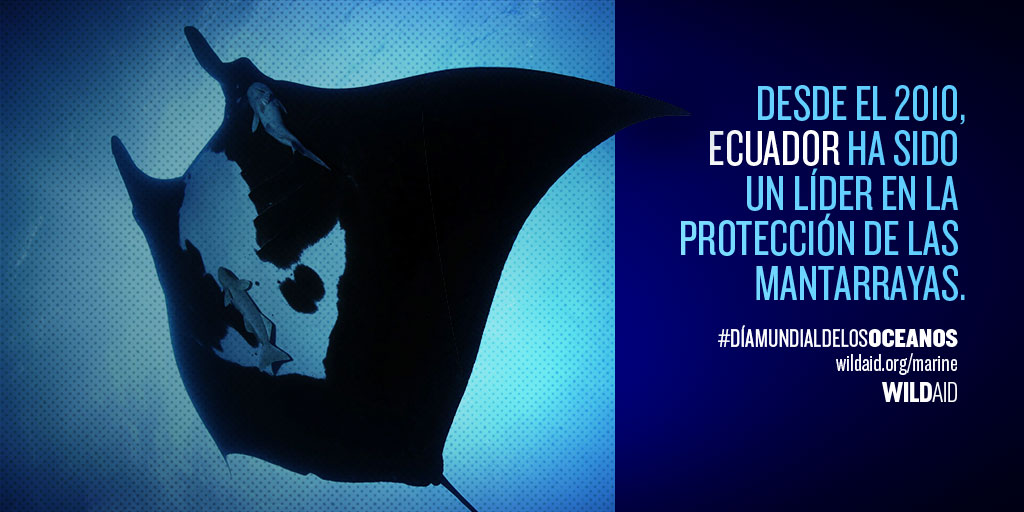

Las redes y palangres son sus principales amenazas, en Ecuador. Ellas se acercan a los ganchos del palangres y quedan capturadas de forma incidental. Algunos pescadores buscan y capturan a las mantarrayas para beneficiarse de la demanda de sus branquias, las mismas que son usadas como ingrediente en algunas medicinas Chinas. Las mantarrayas capturadas en los ganchos se agitan para librarse y de esa forma se enredan o sufren heridas por la línea. Un estudio reciente en Ecuador, observó numerosas mantarrayas con lesiones que amenazaban su vida, debido al enredamiento en las líneas.
WildAid ayuda a proteger a las mantarrayas en Ecuador, nuestro modelo comprensivo de protección marítima, apoya los esfuerzos de conservación de las áreas protegidas en la costa de Ecuador Continental, previene la pesca ilegal no sustentable. Proveemos de tecnología para ayudar a monitorear los ambientes marinos, entrenamos a guardaparques en estrategias de patrulla y colección de evidencia, educamos a la comunidad en los beneficios del océano y la importancia de la reducción de pesca en ciertas áreas.
Todas las donaciones al programa marino de WildAid por el día de los océanos, hasta $50,000 se duplicarán hasta el 12 de Junio, gracias a una donación generosa y se utilizaran para proteger a las mantarrayas de Ecuador y otras especies importantes. Duplica tu apoyo para WildAid hoy y de esa forma apoyar a las poblaciones de mantarrayas en Ecuador!
Stay in touch and get the latest WildAid updates.
SIGN UPAbout WildAid
WildAid is a non-profit organization with a mission to protect wildlife from illegal trade and other imminent threats. While most wildlife conservation groups focus on protecting animals from poaching, WildAid primarily works to reduce global consumption of wildlife products such as elephant ivory, rhino horn and shark fin soup. With an unrivaled portfolio of celebrity ambassadors and a global network of media partners, WildAid leverages more than $308 million in annual pro-bono media support with a simple message: When the Buying Stops, the Killing Can Too.
Journalists on deadline may email communications@wildaid.org
